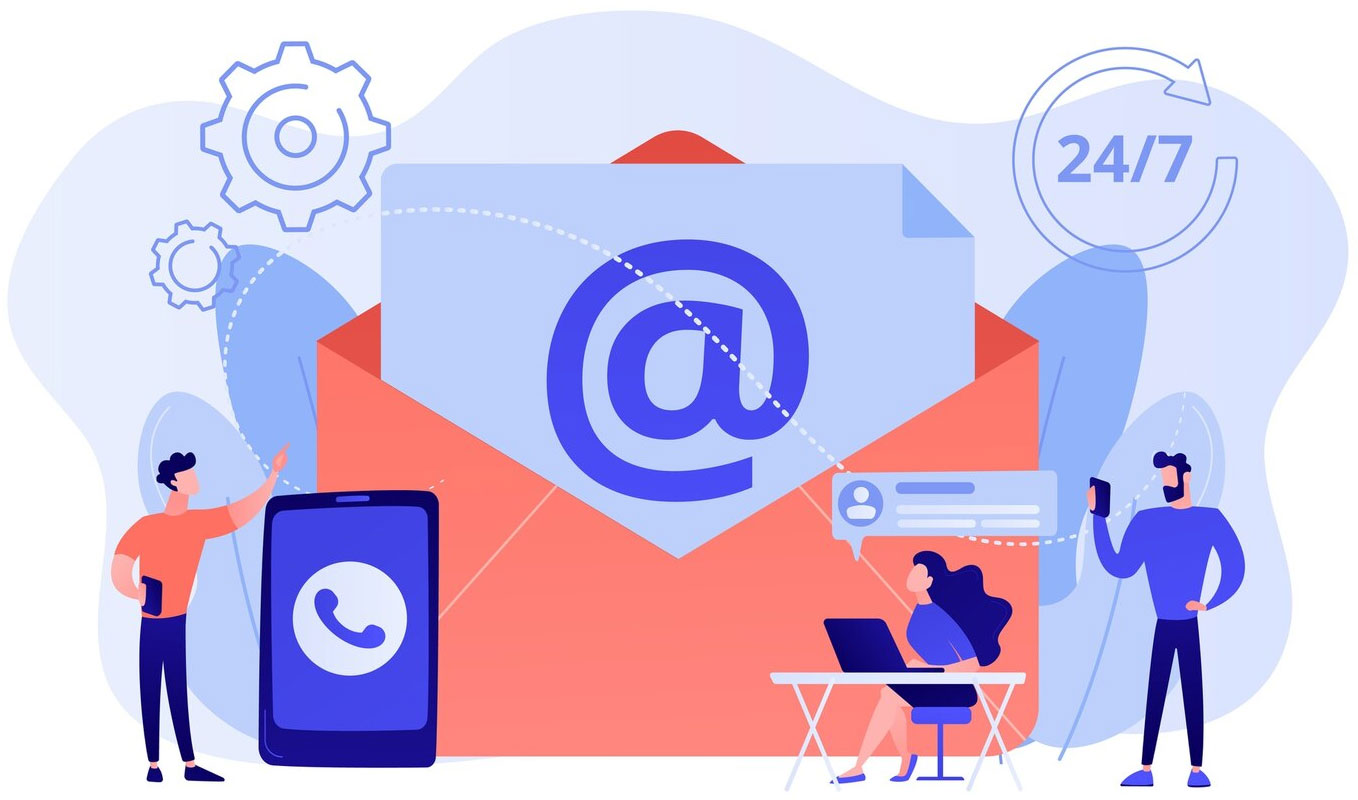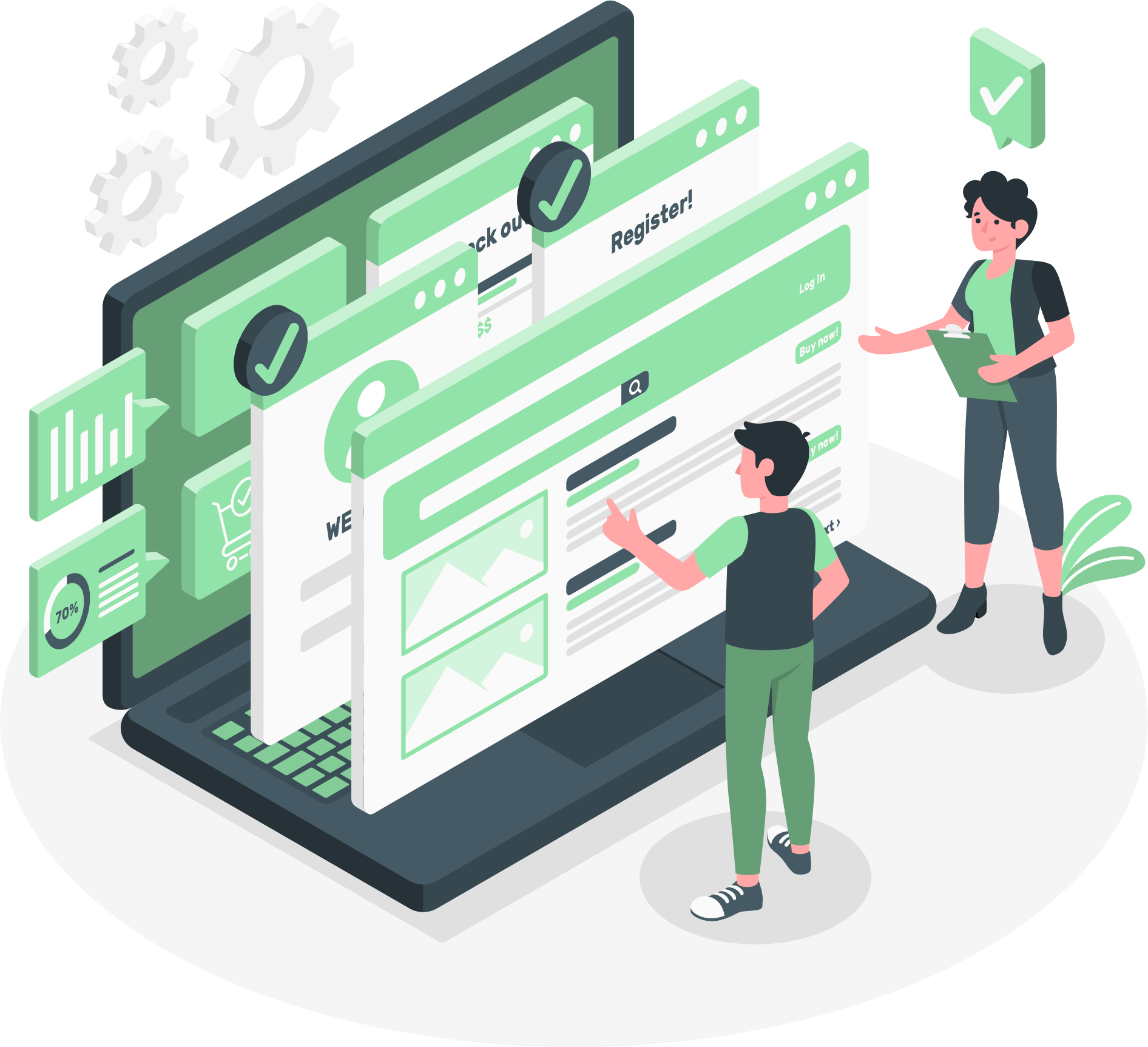In 2025, email marketing stands out as one of the most cost-effective and powerful tools for small to medium-sized businesses (SMBs). While digital marketing evolves, email remains a direct, personal way to connect with customers, drive sales, and nurture loyalty. However, businesses must build a strong foundation that combines strategic planning, engaging content, automation, and proper technical implementation to see consistent success.
This post will explore why email marketing remains indispensable, how to establish a robust strategy, and the trends shaping 2025. Whether you’re just starting out or looking to refine your approach, this blog will provide actionable insights to help your campaigns deliver results.
Why Email Marketing is Cost-Effective

Email marketing’s affordability is a significant advantage, making it accessible to businesses of all sizes. Email delivers exceptional value compared to traditional marketing and other digital channels like pay-per-click (PPC) advertising.
1. Minimal Upfront Costs
Affordable email platforms like FireDrum Email Marketing offer SMBs a cost-effective way to create, automate, and measure email campaigns. With no large production costs or complex tools required, businesses can engage their audience without straining their budgets.
2. High Return on Investment (ROI)
Studies consistently rank email marketing as a top-performing channel for ROI. On average, businesses see a return of $36 for every $1 spent. Email campaigns can generate consistent, measurable revenue by optimizing content and automation.
3. Scalability
Email marketing scales with your business whether your subscriber list is 50 or 50,000. Automation ensures you can grow your audience while maintaining efficiency. For instance, startups can start with a small list and expand campaigns as they grow.
Example: A boutique gym investing $50 monthly in an email platform can easily promote class schedules, fitness tips, and special offers. Gaining just one membership covers the monthly cost while strengthening customer loyalty.
Why Email Marketing is Highly Effective

1. Direct and Personalized Communication
Unlike other forms of digital marketing, email allows businesses to speak directly to their audience in their inbox. It’s a personal touchpoint that fosters trust and engagement.
- Personalization: Craft tailored messages by using subscriber names, purchase history, and preferences.
- Behavioral Triggers: Send targeted emails based on actions like abandoned carts or browsing habits.
2. High Engagement Potential
Emails encourage deliberate interaction. Subscribers who open your email actively engage with your content, making email campaigns ideal for nurturing relationships and driving conversions.
3. Measurable and Actionable Data
Email platforms provide metrics like open rates, click-through rates (CTR), and conversions. This data helps refine campaigns in real time, ensuring continuous improvement.
The Core Essentials of Email Marketing in 2025
Building a strong foundation involves mastering the basics while incorporating modern strategies to meet audience expectations. Here are the core pillars:
Clean and Engaged Email Lists
An email campaign is only as strong as its subscriber list. Maintaining a clean and engaged list improves deliverability and engagement.
- Remove Inactive Subscribers: Periodically clean your list to avoid spam traps and improve metrics.
- Use Double Opt-In: Ensure subscribers actively want to receive your emails by confirming their subscription.
Tip: Never buy email lists. Purchased lists often contain irrelevant or disengaged contacts, harming your sender’s reputation.
Build and Grow Your List
An engaged email list is the backbone of successful campaigns.
Strategies to Grow Your List
- Offer Value: Provide incentives like exclusive discounts or free resources to encourage sign-ups.
- Example: “Join our newsletter and receive 10% off your first purchase.”
- Leverage Pop-Ups: Use non-intrusive website pop-ups to capture visitors’ attention.
- Promote on Social Media: Share your email sign-up form across platforms, emphasizing benefits.
- Offer Value: Provide incentives like exclusive discounts or free resources to encourage sign-ups.
Craft Compelling Content
Engaging content keeps subscribers interested and engaged.
Content Best Practices
- Strong Subject Lines: Your subject line determines whether an email gets opened. Keep it short, intriguing, and relevant.
- Example: “Your Exclusive Offer Awaits ”
- Concise Messaging: Deliver your message quickly and avoid overwhelming readers with long blocks of text.
- Clear CTAs: Direct readers to take action, such as shopping, booking, or learning more.
- Strong Subject Lines: Your subject line determines whether an email gets opened. Keep it short, intriguing, and relevant.
Prioritize Mobile Optimization
With over 60% of emails opened on mobile devices, your emails should be mobile-responsive.
Tips for Mobile Optimization
- Use responsive templates that adapt to all screen sizes.
- Ensure subject lines are concise and impactful.
- Use large, clickable CTA buttons for easy navigation.
Example: Replace “Click here to explore our collection” with a clear “Shop Now” button.
The Power of Personalization in 2025

Personalization transforms generic emails into meaningful, targeted messages. In 2025, AI tools make it easier than ever to deliver tailored content.
How to Personalize Emails
- Use Names: Include the recipient’s name in subject lines or greetings.
- Behavioral Triggers: Send emails based on user actions, like abandoned carts or browsing history.
- Dynamic Content: Customize email sections based on user preferences or location.
Example: A fitness studio could send a personalized email like this:
- Subject Line: “Hi [First Name], Your Fitness Goals Are Within Reach!”
- Content: Offer class recommendations based on the recipient’s past bookings.
Advanced Email Strategies for 2025
Welcome Campaigns: Make a Strong First Impression
Welcome emails are often the first interaction with your brand and set the tone for future engagement.
Best Practices
- Send Immediately: Follow up on sign-ups within minutes to capitalize on interest.
- Introduce Your Brand: Share what makes your business unique and how you provide value.
- Include a CTA: Encourage new subscribers to explore your website, browse products, or take advantage of an offer.
Nurturing Campaigns: Guide Prospects to Conversion
Nurturing campaigns are automated sequences designed to educate and move leads through the sales funnel.
Tips for Effective Nurturing
- Segment Your Audience: Tailor campaigns to align with customer personas or interests.
- Provide Value: Share industry insights, tips, or exclusive offers.
- Refine with Testing: Experiment with subject lines, CTAs, and content to find what resonates.
Example Sequence for a Home Services Company:
- “5 Easy Fixes to Boost Your Home’s Value”
- “Success Stories: How We Helped Customers Like You”
- “Book Your Free Consultation Today!”
Holiday and Birthday Campaigns
Seasonal and personalized emails strengthen customer relationships.
Holiday Emails
- Example: “Happy Holidays! Enjoy 20% Off Your Next Purchase.”
- Include festive visuals and limited-time offers to drive engagement.
Birthday Emails
- Example: “Happy Birthday, [Name]! Here’s 15% Off to Celebrate.”
- Make offers time-sensitive to encourage quick action.
Asking for Reviews
Positive reviews can elevate your brand’s credibility. Email is an excellent tool for gathering feedback.
Tips
- Send requests shortly after a purchase or service.
- Provide direct links to review platforms like Google or Yelp.
- Offer a small incentive, like a discount, to encourage participation.
Additional Ideas for Email Marketing in 2025
- Product Launch Announcements: Build excitement by sharing sneak peeks and exclusive offers.
- Event Invitations: Promote webinars, workshops, or in-person events to engage your audience.
- Customer Appreciation Emails: Show gratitude with a “thank you” email and special rewards.
- Re-engagement Campaigns: Win back inactive subscribers with offers like “We Miss You! Here’s 20% Off.”
Technical Foundations: DMARC and Domain Authentication
Why DMARC is Essential for Email Deliverability
DMARC (Domain-based Message Authentication, Reporting, and Conformance) is an email authentication protocol that protects your domain from being used for phishing or spam. It ensures that only authorized senders can use your domain.
Benefits of DMARC for SMBs
- Improved Deliverability: Emails are more likely to land in inboxes rather than spam folders.
- Enhanced Security: Prevents domain spoofing and builds trust with recipients.
- Actionable Insights: DMARC reports provide valuable data about email performance and potential threats.
Tips for Setting Up DMARC:
- Work with your email hosting provider to configure DMARC records.
- Use tools like DMARC Analyzer to monitor your domain’s email activity.
- For maximum security, combine DMARC with SPF (Sender Policy Framework) and DKIM (DomainKeys Identified Mail).
Maintaining a Consistent Sending Schedule
Consistency builds trust and improves email engagement.
Why Consistency Matters
- Builds Reliability: Subscribers expect regular updates, fostering loyalty.
- Boosts Deliverability: Email providers reward consistent behavior with better inbox placement.
- Improves Planning: A schedule helps align campaigns with business goals.
Maintaining a Constant Sending Schedule
Consistency is one of the pillars of effective email marketing. A constant sending schedule ensures your audience knows when to expect valuable content from you, fostering trust and anticipation. Here are the key reasons why maintaining a regular schedule is vital:
1.Build Trust with Your Audience
- When subscribers know to expect your emails regularly, it creates a sense of reliability. This familiarity can strengthen their connection to your brand.
- For instance, a weekly newsletter or monthly promotion becomes something they look forward to, increasing engagement rates.
2. Improves Deliverability
- Email providers like Gmail or Outlook evaluate your sending behavior. Sporadic or inconsistent sending patterns can flag your emails as spam.
- Consistent scheduling signals to email providers that your emails are legitimate and that you’re engaging with a steady audience.
3. Maximizes Engagement
- Subscribers are more likely to open emails when they’re familiar with your timing. Whether it’s a Monday morning update or a Friday afternoon sale, aligning with audience habits boosts open and click-through rates.
4. Facilitates Campaign Planning
- A regular schedule makes planning content, promotions, and product launches easier. It lets your team stay organized and align email campaigns with broader marketing goals.
How to Maintain a Constant Sending Schedule
Sticking to a schedule might sound simple, but it requires strategic planning and the right tools to ensure long-term consistency. Here’s how to achieve it effectively:
1. Use an Email Calendar
- Create an editorial calendar that outlines your email topics, goals, and send dates for each campaign.
- Tools like Google Calendar, Asana, or specialized email platforms (like FireDrum Email Marketing) can streamline the process.
Tip: Plan emails around key events, holidays, and product launches to stay ahead.
2. Segment Your Audience
- Different segments require different frequencies. For instance, VIP customers might appreciate weekly updates, while others may prefer monthly newsletters.
- Tailor schedules to fit each group’s preferences and behavior.
3. Automate Your Campaigns
- Leverage automation tools to ensure emails go out on schedule, even during busy periods or holidays.
- Tools can also send emails at optimal times based on subscriber engagement data.
4. Monitor and Adjust
- Regularly review your email analytics to identify the best times and frequencies for your audience. Metrics like open rates and unsubscribe rates provide insights into whether your schedule needs tweaking.
5. Test and Optimize
- Conduct A/B testing to determine the ideal day and time to send y`our emails. What works for one audience segment may not work for another.
- For instance, test whether sending on Wednesday mornings gets better engagement than on Thursday afternoons.
Consistency Leads to Success
Maintaining a constant sending schedule isn’t just about sending emails—it’s about fostering a predictable, reliable connection with your audience. By implementing a schedule and sticking to it, you enhance brand credibility, boost deliverability, and increase the effectiveness of your campaigns.
Strengthen Your Strategy Today

Email marketing is a dynamic channel that remains relevant in 2025 by combining proven techniques with modern innovations. Businesses can foster meaningful relationships with their audience and drive lasting results by building a strong foundation, leveraging automation, and incorporating personalization.
At FireDrum Email Marketing, we provide the tools and expertise to help SMBs succeed. Whether you’re just starting or looking to optimize your campaigns, we support you. Contact us today and build your best email marketing strategy for 2025!

